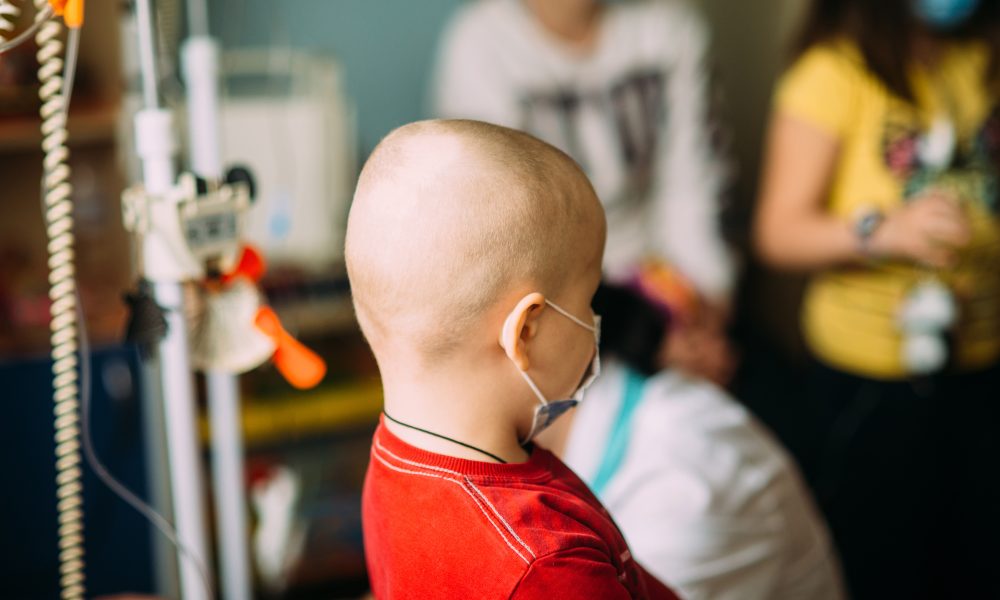
Children who develop neuroblastomas, a rare form of cancer which develops in nerve cells, may benefit from receiving certain anti-tumour drugs as well as chemotherapy, a new trial has revealed.
The results of the BEACON trial conducted by the Cancer Research UK Clinical Trials Unit at the University of Birmingham found that combining anti-angiogenic drugs, which block tumours from forming blood vessels, alongside various chemotherapy drugs led to more young people seeing their tumours shrinking.
Simon Gates is Professor of Biostatistics and Clinical Trials at the University of Birmingham and senior lead author of the paper.
The researcher said: “These are very exciting results that hopefully get us closer to finding treatments for children who develop neuroblastomas.
“Currently, the outcomes are really poor for children who get this horrible cancer and so even seemingly small increases in the chance that a patient is going to be able to shrink their tumours is significant.
“We are delighted that the BEACON trial has helped to shape treatment for children with relapsed and refractory neuroblastoma going forward.”
The trial recruited 160 young people aged 1-21, from 43 hospitals in 11 European countries, randomised with half receiving the anti-angiogenic drug called Bevacizumab on top of conventional therapy.
The group who received Bevacizumab had an increase in the likelihood of responding to treatment, from 18 per cent among those who only had the established therapy to 26 per cent for those with the additional drug.
Participants who received Bevacizumab additionally had better one year progression-free survival rates.
The trial was one of many collaborations between the University of Birmingham and European expert groups SIOPEN (International Society of Paediatric Oncology European Neuroblastoma) and ITCC (Innovative therapies for children with cancer).
Dr Lucas Moreno is Head of Paediatric Haematology and Oncology at Vall d’Hebron University Hospital, Barcelona, Spain and Chief Investigator for the study.
The researcher said: “BEACON was a hypothesis-generating trial that has served to identify active regimens that are now being further investigated.
“We are delighted that the data generated has been incorporated into the current UK Clinical Practice Guidelines and Bevacizumab is incorporated into standard treatment for relapsed neuroblastoma.”
Dr Laura Danielson, Children and Young People’s Research Lead at Cancer Research UK who part funded the trial, added: “There are limited effective treatment options available for children whose neuroblastoma has not responded or come back after initial treatment.
“The results from the BEACON trial provide more hope to these families by finding a drug combination that is better at treating the disease than standard chemotherapy alone.
“These incremental improvements in treatment can make all the difference for cancer patients and it’s fantastic to see that the standard of care across the UK has already been updated based on these results giving children with neuroblastoma more treatment options.
“Meanwhile, more work is still needed to achieve greater survival and long-term quality of life for children affected by neuroblastoma and this trial is helping to pave the way for studies to better understand the biology of this disease and further efforts to improve outcomes.”



